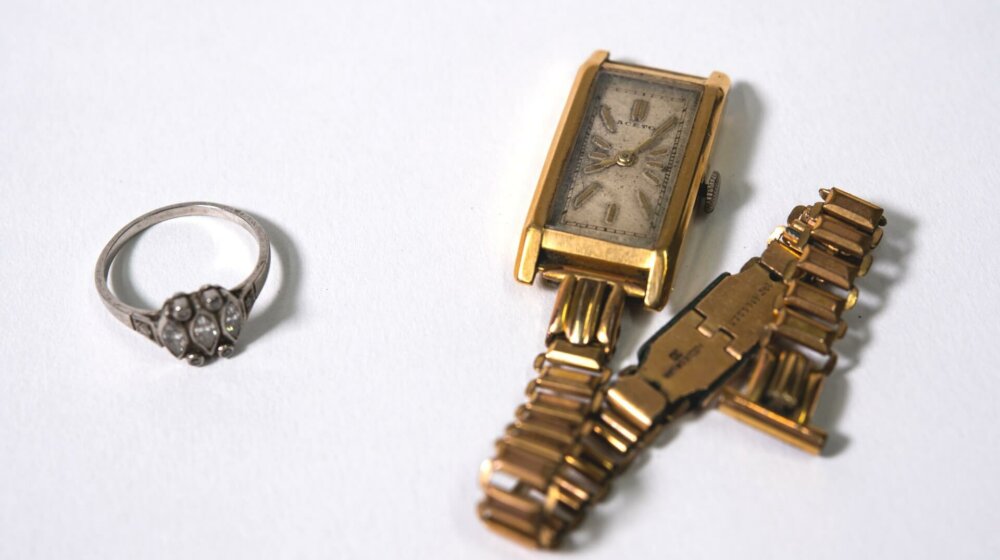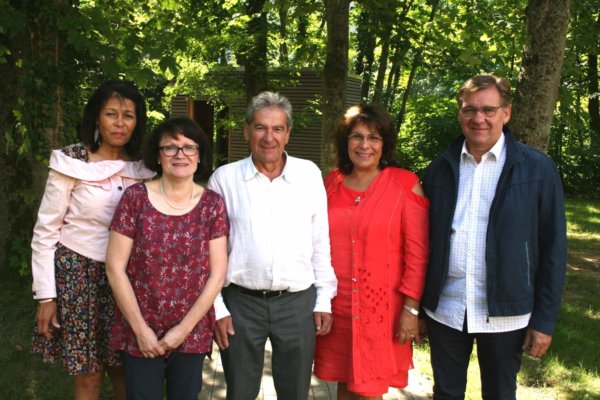Forgotten
heroes

Very few people know that individuals from the French colonies also joined the Résistance movement against the Nazis. Djaafar Khemdoudi was one of them. He originally came from Algeria. By forging documents, Djaafar saved many people from deportation – before he himself was arrested by the Nazis and taken to the Neuengamme concentration camp.
“My father never talked much about his time in the concentration camp,” says Djaafar’s daughter, Malika Mentrel. “But he did say that he and the other prisoners were so hungry they stole all the potatoes from a farmer’s wheelbarrow in a field and wolfed them down, dirt and all.” Visibly shocked, Malika Mentrel explains that her father even had to recover bodies from the gas chamber. She visited the Arolsen Archives together with her brother, Jacques Khemdoudi, in order to receive her father’s personal effects – a ring and a watch – from the archive.
Visit to the Arolsen Archives

Jacques Khemdoudi (center) and his sister Malika Mentrel (to his right) traveled to the Arolsen Archives with their spouses (on the far right and left) to retrieve their father’s personal effects. Nathalie Letierce-Liebig, coordinator of the Tracing Department of the Arolsen Archives, spoke with them about Djaafar Khemdoudi’s story.
Interpreting for the occupiers
Djaafar Khemdoudi was born on November 12, 1917, in Aumale (today Sour El-Ghozlane) in Algeria, which was a French colony at the time. As a young man, he moved on his own to France. Djaafar spoke French very well and had a secondary school leaving certificate, which is why the Germans forced him to work as an interpreter at the headquarters in Lyon during the occupation. The Nazis demanded that he interpret for young Algerians who could only speak Arabic and were to be sent to Germany for forced labor.
Many people rescued
To spare his compatriots from being forced to work, Djaafar forged health certificates and issued false documents so that they could escape to the unoccupied part of France. In this way, he saved many people – not only Algerians but also Jews and other Europeans – from being deported. Djaafar was arrested after being denounced. He was imprisoned in the French internment camps of Montluc and Compiègne before being deported at the end of July 1944 to the Neuengamme concentration camp. In late March/early April 1945 he was sent on an evacuation transport to the Ravensbrück concentration camp, where he was liberated on April 14th.
In France, Résistance members from North Africa are also referred to as the “indigenous resistance.” They are considered to be hidden heroes whose stories were rarely told.
The same applies to Djaafar, who never wanted to give an interview. It is also important to his children that their father is listed as a Frenchman in the Arolsen Archives and not as an Algerian – after all, he fought in the French resistance. They are proud that he was recognized for his services as an officer of the Legion of Honor, and that after he died, a plaque was placed in his former cell in the Montluc memorial.

